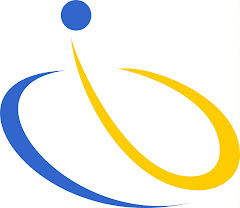When it comes to programming, choosing what you will do is not typically the problem area; managing the program is generally where you hit the snags.
That said, here are a few things to keep in mind as you build your agenda:
• Choose speakers primarily for their speaking ability. Yes, the reputation and expertise of the speaker are important to varying degrees, but you will always regret choosing someone who turns out to be boring or otherwise a poor speaker. Make sure that you have seen the person in a comparable situation or that someone you trust – someone who knows what it means to be a good speaker – has seen them and will vouch for their ability.
• Be careful about over-scheduling. There is a fine line between a full program and “Ugh, I thought it would never end” and you just need to keep that in mind.
• Be careful about letting children sing. Sometimes it can be really cute, but other times…
Once your program participants have been invited and have confirmed their attendance, the real work can begin.
First, as soon as you have a (preferably written) confirmation from a participant, you want to send them a written description of what will be expected of/needed from them. This should include such things as instructions related to timing, dress, seating, overall goals for the evening, and a general description of program. Keep it short, but make sure to include anything that might be important, even if you think the participant should already know.
Then, as soon as possible, you want to provide all participants with the draft agenda. The draft should include all time limits and any special instruction. For example, if speakers will be sitting in a designated area or if you set up a way for people to know that their time is almost up. As changes are made to the program, provide the revised agenda to the participants – this will reinforce key information, such as time limits.
As a rule of thumb, you can send the draft agenda three or four times, with small revisions.
Master of Cermonies
Ideally, your master of ceremonies will be someone who is recognizable to your audience; skilled at injecting humor or whatever emotion is appropriate for the occasion; and able to keep the evening running on schedule. In the best case, you want someone with experience serving in this sort of role. No matter what, you want to make sure that they know everything about the evening, and that the key details have been reinforced several times – at least as many times as they have been reinforced with the other participants. The best masters of ceremonies are prepared and feel completely confident that they understand the details of the evening.
Keeping people on track
Here is a tried and true list of steps to take if staying on time is important (and it should always be important):
• Before hand, remind speakers about the time limit at least three times, in writing, then again, in writing, as they walk in the door.
• Put a sign on the lectern that reminds speakers of their time limit.
• Place a small digital clock on the lectern so that speakers can clearly monitor how much time remains.
• Let someone be an informal timekeeper; place them in the speaker’s line of sight and let the speaker know that this person will stand when 15 seconds remain on the speaker’s time limit.
Dealing with audio/visual technology
If your event includes audio/visual components then this can be one of the scariest facets with which you will deal, but that does not need to be the case.
Here’s what you do:
• Put one person in charge of dealing with the A/V technology.
• Practice using everything the day before the event.
• Practice using everything again, an hour before the event.




No comments:
Post a Comment